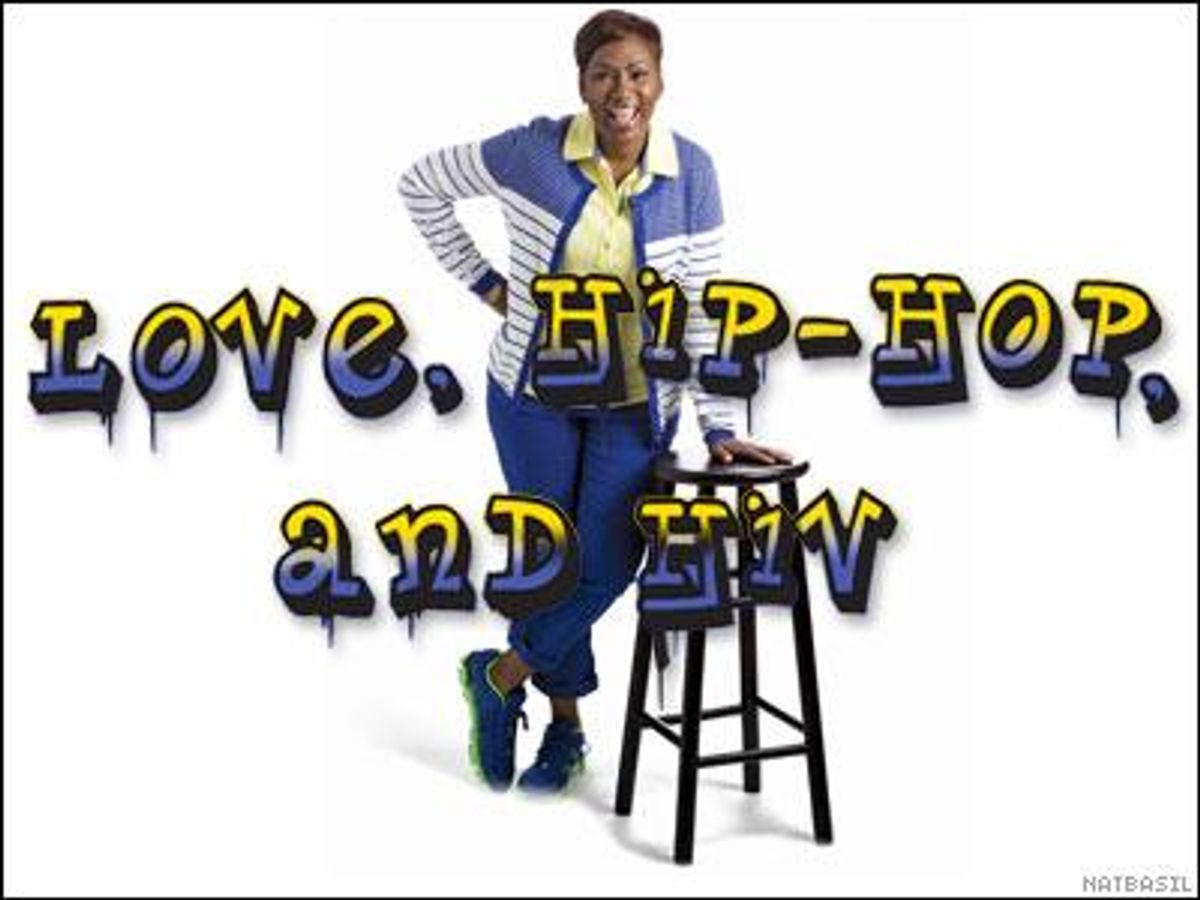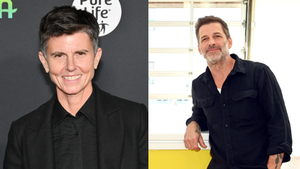In 1995 Maria Davis was a hot young hip-hop music promoter, running a legendary New York City party called Mad Wednesdays that helped launch the careers of now-legendary rappers including Jay-Z, Lil’ Kim, and Sean “Puffy” Combs. She was already well known in hip-hop circles, even featured on Jay-Z’s “22 Two’s” track from his debut album, Reasonable Doubt. The future Mr. Beyoncé told XXL magazine Davis helped him move his energy from the streets to making music. “I was pretty focused when I was creating the album, ’cause there was Maria Davis every Wednesday.” (And that song with Davis’s spoken word, he says, became “my secret weapon. Any show I did, I would pull that out.”)
It’s safe to say that New York native Davis was riding high: young, hip, black, and a curator of cool in the music scene. Then she received a letter that would change her life. Standing in a post office, Davis read the note from her life insurance company, which had screened her for preexisting conditions as part of its application process. “You are HIV-positive,” the letter informed her. “Please go and seek help.”
At the time, the news seemed inconceivable to Davis, a woman who had unknowingly become infected by her then-fiancé. The topic of HIV was taboo to many African-Americans, who considered it a “white gay man’s disease” and referred to AIDS in hushed tones as “the monster.” The same held true in the music industry and among her friends, so when Davis was directed to go and seek help, she says she just didn’t know where to turn.
Even as she was “dwindling away” from the virus, which caused extreme weight loss and a hole “the size of a nickel” in her tongue, no one dared to ask about her health. No one asked if she needed help. Three years after receiving her initial diagnosis, the virus had advanced to AIDS, the “monster” had arrived, and Davis feared the end was near.
Imagine her joy, almost two decades later, as Davis walked onstage at the 2014 U.S. Conference on AIDS last fall to thunderous applause. She struggled to hold back tears. A video had just introduced her story to the hundreds of prominent leaders, activists, and officials gathered for the event, where she was invited as a spokesperson for Merck’s HIV awareness campaign, I Design, alongside designer and TV personality Mondo Guerra and photographer Duane Cramer.
“To be diagnosed in 1995 and then turn around and be almost 20 years into this illness,” Davis said to the standing ovation with a box of tissues in hand. “I just thank God.”
In this time, Davis has proved herself a survivor. In addition to running several marathons, she has become a prominent activist and a much-needed voice around HIV and women, people of color, and her beloved music industry. In those 20 years, she has partnered with initiatives like Lifebeat: Music Fights HIV/AIDS and BET’s Rap-It-Up Campaign and was also the keynote speaker of the National Black Leadership Commission on AIDS.
Today, she has a new partner: Merck’s I Design campaign, which offers people with HIV online tools to record information on symptoms, treatment, and the side effects of medication. For Davis, the goal is to provide others with the education and resources that she once lacked.
“When I saw the video, it reminded me of how far I’ve come,” Davis told HIV Plus after the emotional presentation, the waters of San Diego Bay sparkling behind her. She says that 20 years ago she just “didn’t have information. I didn’t have Merck’s educational HIV campaign to empower people living with HIV to have open and honest conversations with their doctor. Nobody did that, because you were afraid to talk.”
Davis says fear is still a major obstacle to HIV prevention: not only the fear of contracting HIV but the fear of discussing one’s positive status with others and not knowing what others might do with that information. It was these same fears of “the monster” that had prevented her from obtaining help all those years ago.
It’s all about education, Davis says, which is why she partnered with Merck. At ProjectIDesign.com, visitors can download tools like a conversation checklist, a medication worksheet, and a desktop app that will help them communicate with their physicians and tailor their treatment regimen to fit their needs. This method has an additional advantage, Davis notes — online research in the privacy of one’s home may be an essential first step for those who may feel scared to ask others about HIV in person.
“The power comes from us — those that are living with HIV. And if we stand together, we start to be very strong,” Davis says, and that strength can start “melting away the stigma [and] the ignorance.”
Davis acknowledges that while she cannot be sure how being HIV-positive has affected her career, she is certain that it has impacted her life, by offering a deeper mission than one initially promised by her calling in entertainment.
“A lot of people I had to leave by the wayside because they didn’t understand — even some family members,” Davis says. “God was building me up so I could help other people to understand that you don’t have feel shameful [about your status] or worry about stigma. And if you stand strong, there’s a community that will embrace you.”








































































